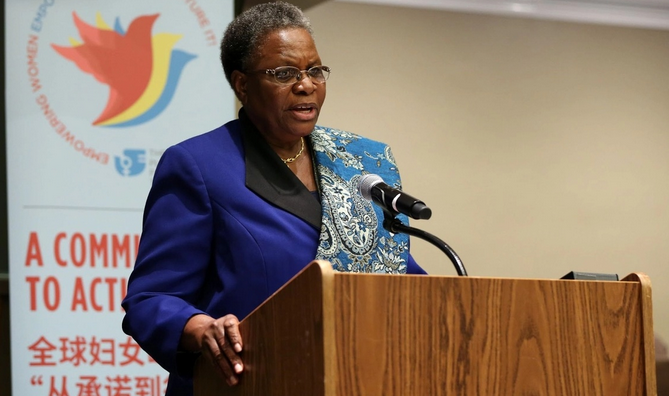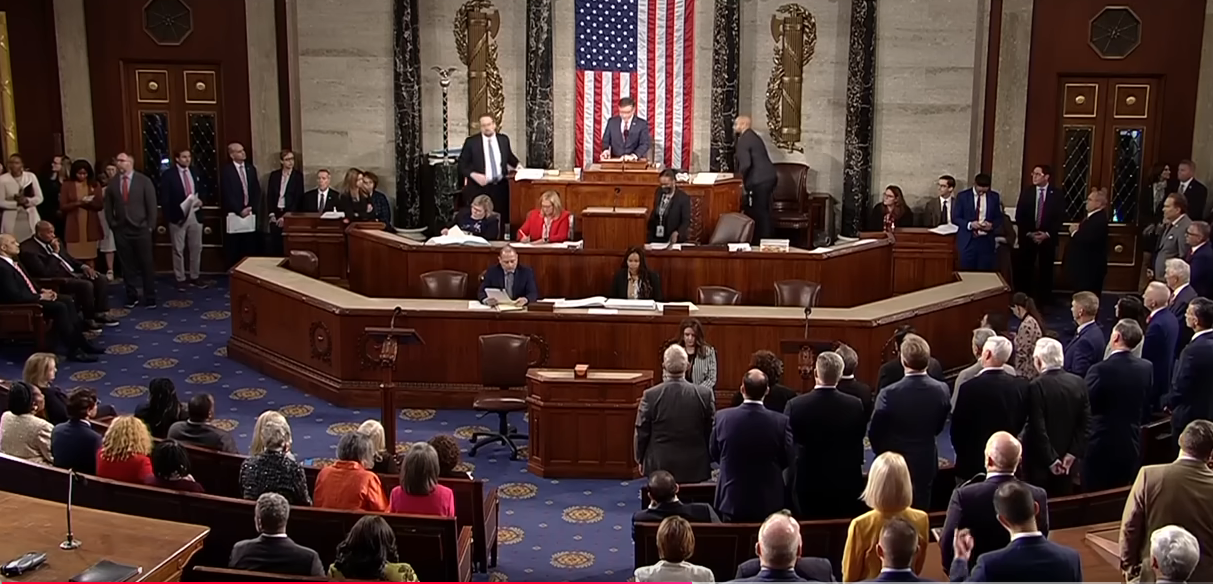Foreign Gods Inc.
[Book Review]
The Gods must indeed be angry.
After selling off Ngene, the deity of his ancestors to a gallery, New York City-based Ikechukwu Uzondi, or “Ike” for short (pronounced “Ee-Kay”), originally of Utonki, Nigeria, finds out that in the end he can’t really run away from his own destiny.
What’s he experiencing towards the conclusion –or perhaps intermission– of this fabulous story?
Is it the wrath of Ngene, a God presumed to be dead and useless by some people, now that fetishes and deities don’t enjoy the same level of reverence of yesteryear?
Is it the final pull of what’s been hinted at all along; that Ike himself was a “chosen one” given the signs, such as the convulsions he experiences, and the blackouts during heavy thunderstorms?
Each reader will have to come up with her or his own interpretation.
What’s known for sure is that Ngene was once fierce.
In the words of a modern-day scholar, Dr. Okwudili Okeke, who is one of the characters in Okey Ndibe’s splendid book, “Foreign Gods Inc,” (Soho Press, 2014) and who, in his own book, we are informed, wrote: “In long-gone days, when lizards were in ones and twos and Utonki was the terror of its neighbors, the deity’s mouth inspired dread. It belched thunder, claimed its worshippers and flashed lightening.”
Yes, Ngene, had soldiered forward with the people of Utonki, carrying them mightily, like a great Field Marshall, from one victory to the next.
Yet that was a long time ago, or, to borrow from Dr. Okeke again: “The heyday of Ngene was many, many, moons ago before the white man came and turned the world on its head, made today into yesterday, and declared the cohabitation of lion and lamb.”
Ngene has now been largely forgotten. There are no more great wars of the old type.
Today, Nigeria has a “national” military, bringing formerly proud warring people’s under one umbrella, and this army is engaged in a new type of war — against a foe called Boko Haram. The army uses helicopter gunships, aerial bombardment, and scorched earth machine gun operations. The enemy is vicious, using lethal weapons and sparing no one; not even women and children civilians. Christianity and Islam are invoked in these ugly battles.
There is no pride in this type of carnage and no role here for Ngene.
Today Ngene is confined in a hut and spends sun-rises and sun-sets in the company of his keeper, Osuakwu, Ike’s uncle, who in turn holds court with his three or four wise men. This court sits and talks, and chews on Kola nut and drinks gin or the local brew called “ngwu.”
So this is how it was, until Ike, here in New York City, far-away from Utonki, in his thirteenth year of languishing as a cab-driver, entertained a most strange idea.
Cab-driving isn’t Ike’s chosen calling. The elements have conspired to deny him a share of the American dream. The man has a degree in economics from an elite American school; Amherst College. His vision of success includes plenty of money in the mix and material acquisitions.
Was it his fault that these obnoxious gatekeepers in charge of hiring for Corporate America had a problem with his accent? This is the same accent that had scored him many dates in college. Now the accent couldn’t put bread on his table. What did accent have to do with competence anyway?
At one point Ike believed the only thing holding him back from success was lack of a green card. So he shelled out $3,500, and more, of his hard-earned and hard-saved dollars for a fixed-marriage. Then the green-card-bride-to-be, Yesenia, was a no-show.
The fixer, her uncle Ricardo, adds insult to injury, when he has the audacity to ask Ike to lend him money. Yesenia had merely traveled and will show up any time now, he assures. Ike sinks more money until he gets tired of being strung along and cuts off contact.
Ike ends up marrying Bernita Gorbea, or, Queen Bee. Sure they didn’t share much in common so there can’t be serious conversation. Yet, for a while, Queen Bee’s body made up for it. The sex was great. After all, “on their first meeting –and for the years they lived together– he remembered her for oozing sex.”
Ike knew Bernita was not the one to write home about. His mother and sister, who are the two relatives he remains in touch with, never get to hear about Bernita.
The marriage doesn’t last long. There’s always the touchy subject of Queen Bee spending the little money he has on shopping sprees. Tension builds. When the sex still masked their incompatibility, he could tolerate it when she referred to him as “Zulu.” In time, there was nothing funny when she snapped, “Don’t Zulu me your Zulu shit, Zulu!”
Bernita had also confessed to having an affair with Cadilla, the intensely-annoying Bodega owner. Cadilla, unaware that Ike knew, still greets him effusively. One time he even insists that Ike accept a six-pack of Guinness “on the house.” Exasperated, Ike slams a $10 bill on the counter. As he walks out the store, Cadilla runs after him and thrusts the money in his pocket.
Queen Bee has a shark of a lawyer for the divorce and she wipes out whatever savings Ike had left.
Meanwhile, Africa’s long arm reaches out to Ike in New York City. Nkiru, his sister, fires off an endless chain of e-mail messages demanding for money. She asks — how was their aging mother supposed to survive? Where was the money he promised to send?
Ike’s ordeal is in many ways the story of tens of thousands of Africans who come to America with plans of making it big. They’re all expected to help financially support their kin back in the old countries. After all, who could come all the way to the United States of America and end up a failure? Only selfishness could prevent an African in America from sending money back home. Driving a cab? One could do that in Lagos, Nairobi, Kampala, Harare, or any other African city.
Welcome to America.
In Ike’s case, in addition to being cleaned out by Bernita, his gambling problem took care of the rest of his money.
And, unbeknownst to Ike, back in Utonki, some of the little money his mother had was going to the up-keep of Pastor Godsend Uka, a smooth-talking conman-preacher in the tradition of Jimmy Swaggart or Eddie Long.
As Ike reads the desperate e-mail messages from Nigeria, he can’t bear it anymore;
he develops intense headaches so sometimes he avoids reading the messages.
Meanwhile his bills keep mounting. The man needs money; and plenty of it, now.
So what a fabulous solution he dreams up.
Like an African Indiana Jones, Ike plans to travel to Utonki to reclaim one of his people’s Gods, Ngene — not for its spiritual or protective powers, but for sale to a gallery.
For naked profit.
How ironic that Ngene could conceivably end up being sold in a gallery and then carried off by some stranger, many years after his great victory against a white interloper who had traveled to Utonki to spread the word of his own God.
The stranger arrived many years before Nigeria was one official nation-state. His name was Rev. Walter Stanton; the locals knew him as Stan-tee-ny.
The stranger condemned the “paganism” that prevailed among these people. He preached the gospel of the one-and-only God; his God.
Some locals were unimpressed when Stan-tee-ny claimed there was a legitimate reason why his God was invisible — unlike Ngene, who was carved, and firm, and could be physically seen and held. Stan-tee-ny also explained off why his God didn’t accept sacrifices, or offerings of food and libation.
But some locals did warm to the stranger when they realized he too had some practices similar to the ones of their own diviners who consulted spirits and then conveyed the meaning in words to them. Stan-tee-ny, the locals noted, bowed his head like a diviner at a parchment with worm-like inscriptions; then he communicated the meaning through his own language, which was then translated by his interpreter.
Try as hard as he Stan-tee-ny could to get the people of Utonki to abandon their God, Ngene would eventually have his way.
The stranger’s physical condition degenerated. His skin started peeling off. He started speaking to himself at night. Soon he was quite insane. One day, he plunged, in his unpleasant nakedness, into the great river as if taking a swim. He never emerged.
Locals believed Ngene invited the river to swallow up the would-be challenger.
That was all long ago. Many people in Utonki now, ironically, prayed to a new God; Stan-tee-ny’s God, with pastors such as Godsend Uka.
Meanwhile, here in New York, Ike’s poverty and desperation sowed the seeds of the sacrilegious plot. His friend had suggested he read a New York Magazine profile of Mark Gruels, owner of a gallery named Foreign Gods Inc.
Gruels paid top dollars for Gods such as Ngene.
During a visit to the gallery, Ike peruses one of the catalogs and discovers that some of the deities were listed at more than $1 million. He’s convinced he can earn as much; after all, which one of these other so-called foreign gods, some from Asia, had ever defeated Stan-tee-ny?
Gruels seemed not impressed when Ike meets him briefly. Is he feigning ignorance of African Gods so he can later cheat Ike by under-paying? In any case Ike believes Gruels will change his mind once he returns with the deity.
Ike borrows money from a friend; then he’s off to Nigeria. As soon as he lands in Lagos he’s soon fighting off customs officials who expect a “customary” bribe. And truth be told, corruption, small and large, isn’t unique to Nigeria, as the many exposes on Wall Street in recent years showed.
Yet there’s something very blatant, and also colorful, in the Nigerian-style bribe demanding described by Ndibe, who is a masterful lyricist when it comes to words.
Ike survives the airport by refusing to pay. He knows he will suffer consequences on his way out of the country. He escapes another attempt, at a police roadblock, by claiming he had returned home for a funeral and had nothing to spare.
Here’s one flavor of these exchanges; this one occurs at yet another road block Ike encounters, traveling by car from Enugu to Utonki — his driver hopes they can avoid paying the illegal toll on demand:
‘De passenger na VIP,’ the driver said, his voice a veiled caution to the officer.
‘Which kin’ VIP no get him own Mercedes-Benz? VIP dey take taxi? Don’t waste my time. Oya, multiply by two and go.’
Once in his village Ike has to deal with his mother, one of the most loyal die-hard followers of the fraudster Pastor Uka. His sister Nkiru is also a strong Uka convert.
Both condemn Ike for wanting anything to do with uncle Osuakwu or their paternal grandmother, Nne, whom they regard as a sorceress.
Ike discovers that some of his old friends have made out well, as government officials, who’ve used contracts to enrich themselves.
One “success” story in Utonki now goes by the name Tony Curtis. He’s now a Knight of the Order of St. Lumumba, and has built himself a huge mansion, surrounded by the modest dwellings of poor folk.
Villagers get to watch highlights from NBA games, and the associated opulence, in his mansion, whetting their own appetites for the American Dream.
At the right moment Ike does manage to steal Ngene and to sneak out of the country; but not before paying a hefty exit bribe at the airport.
Back in the United States all Ike has to do is get together with Gruels. He would soon be holding a check that would make his eyes pop out.
When Nkiru desperately contacts him to inform him that followers of Osuakwu and those of Pastor Uka had clashed and that their own mother had broken her legs and was in a hospital that wouldn’t treat her until she paid, Ike remains calm.
He promises Nkiru that money would come within a day or two:
‘I’ll send it,’ Ike said. ‘I’ll wire two thousand dollars.’
This time he meant it; all he had to do was sell Ngene.
There is one big twist waiting for readers and for Ikechukwu Uzondi….
This is the kind of book that saddens the reader when she or he realizes the story will soon come to an end on the last page.
Or does it?






